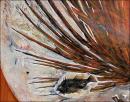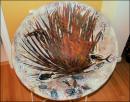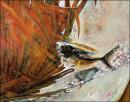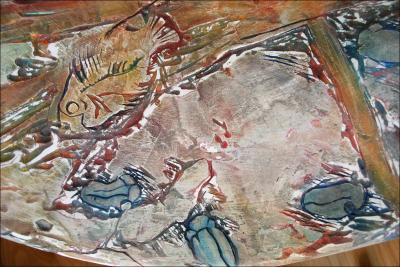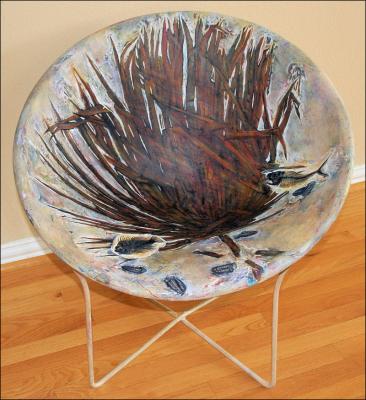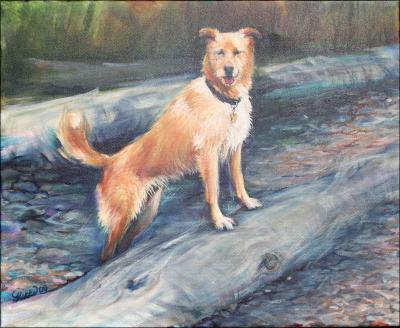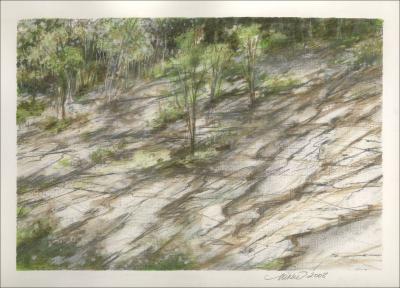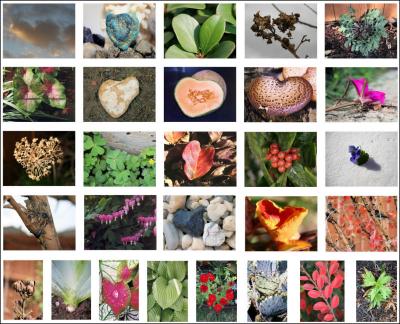rocks
Next Entries »Fossils Chair, Homage to The Earth – finished
Wednesday, April 22nd, 2009
January 12th: While sanding the wood for the Sumac Bushes Chair during coffee breaks, I have started the Fossil Chair, paying homage to the fact that without trees, all life on Earth would not be so prolific, and might not exist at all. Fish and Trilobites are carved into the plaster on the front surface of the chair as well. in this series.
January 13th: Lower detail of Fossil Chair, carved plaster, acrylic paint inlay, sanded. In progress. Trilobites will have painted detail.
Jan. 14th and Jan. 24th updates, below: front details, work in progress on back/underside of the chair. After this stage, all details will continue to be refined with more carving and layers of acrylics. Haven’t done many details on the trilobites yet. The colors in the palm leaf still are too vibrant for a fossil, but are a perfect underlying color because it shows through when layers of blues and black are wiped away with a cloth.
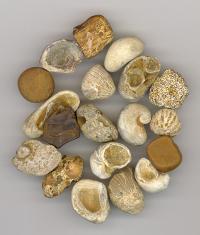 Fossils Chair, Homage to The Earth, started in January and finished today, except for refining the bark fossil patterns on the back/underside. 29 x 29 x 29 inches refurbished vintage chair, canvas strips, plaster, carved, acrylics, varnish, waxed.
Fossils Chair, Homage to The Earth, started in January and finished today, except for refining the bark fossil patterns on the back/underside. 29 x 29 x 29 inches refurbished vintage chair, canvas strips, plaster, carved, acrylics, varnish, waxed.
The back of this chair has authentic 225 – 345-million-year-old fossilized clam shells embedded around the circumference. Next, the Encyclopedia Britannica listing. The fossils were found in a mixture of playground pebbles in Dallas, TX.
The Cycad leaf fossil replica original was discovered in a Wyoming, USA river basin. Portrayed on the front of the chair is the fossil of a Cycad, the first of palm-like trees that grew about 50 million years ago in a Wyoming riverbed. The first trees on Earth were actually nothing more than woody stems standing in and absorbing nutrients from water. Patterns of fossilized Paleozoic Lepidodendron bark- leaf scars are painted on the underside of the chair. Lepidodendron were a primitive species of the very first trees on earth, reaching heights of 130 feet (40 m) tall around 400 million years ago. Can we even relate to those numbers? That’s what I love about fossils – holding one and contemplating Earth’s timeline is mind-blowing.
| Progress details: | |||||
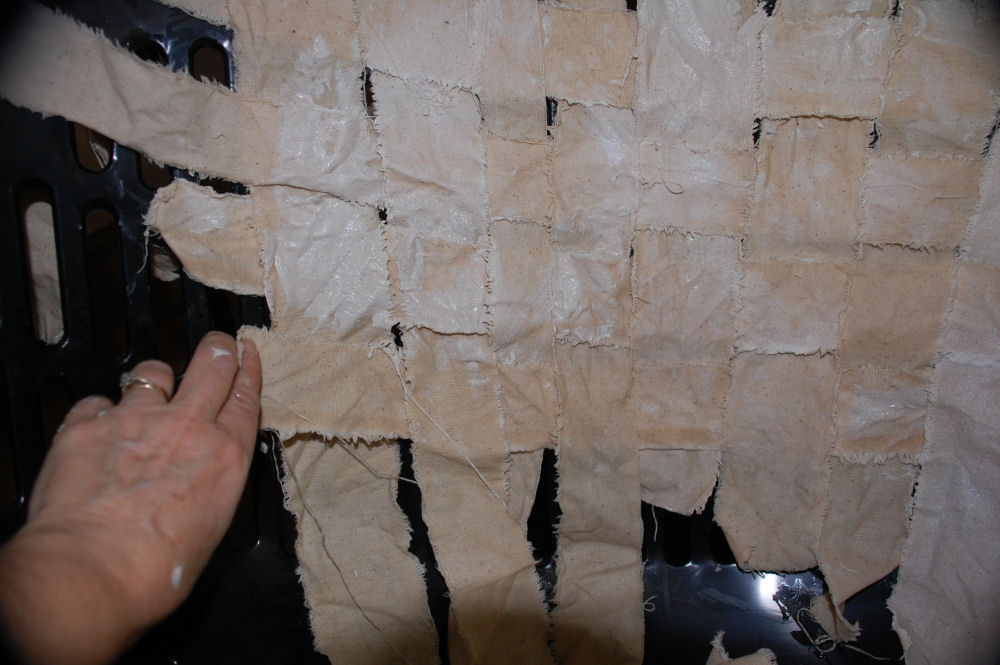 |
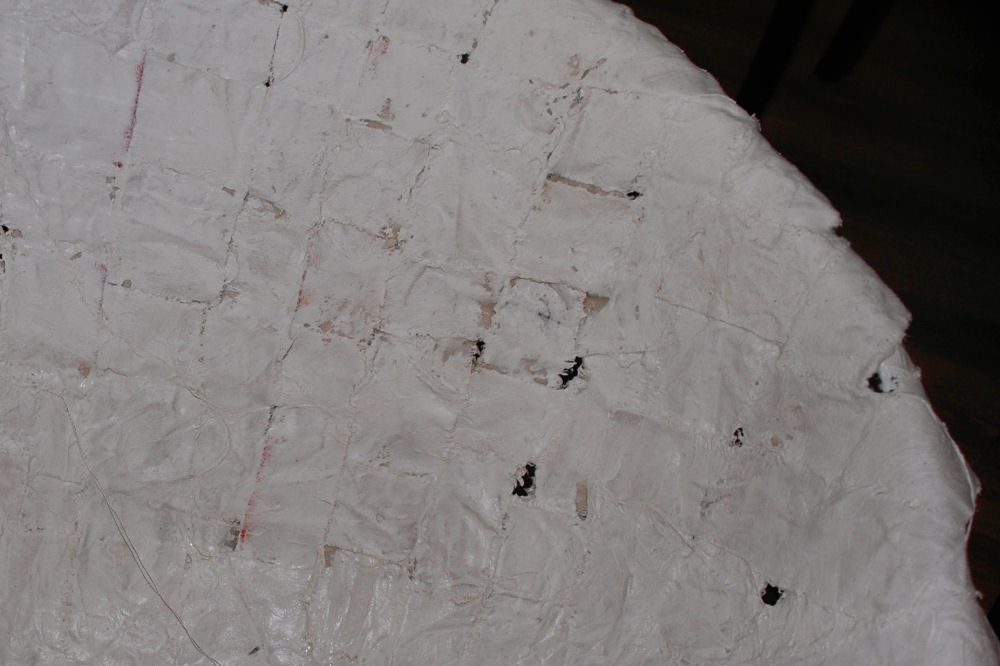 |
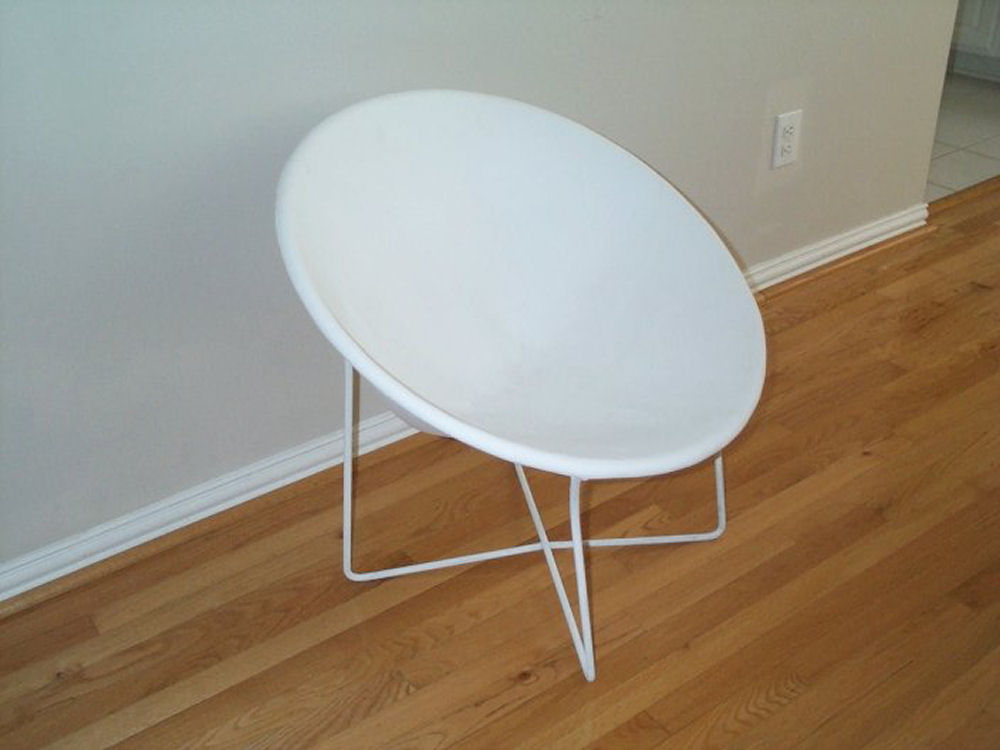 |
|||
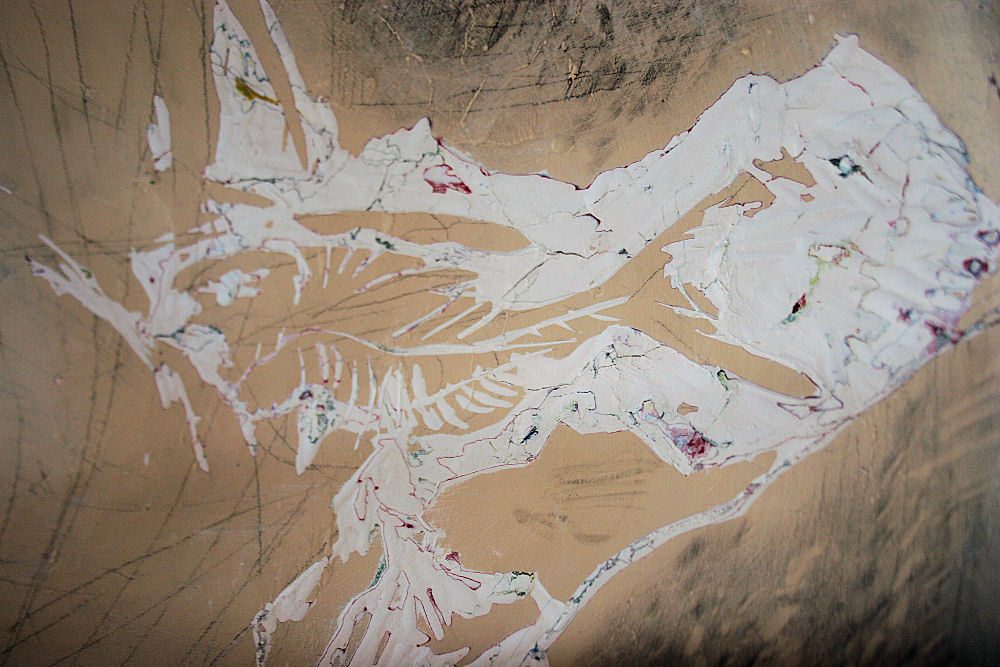 |
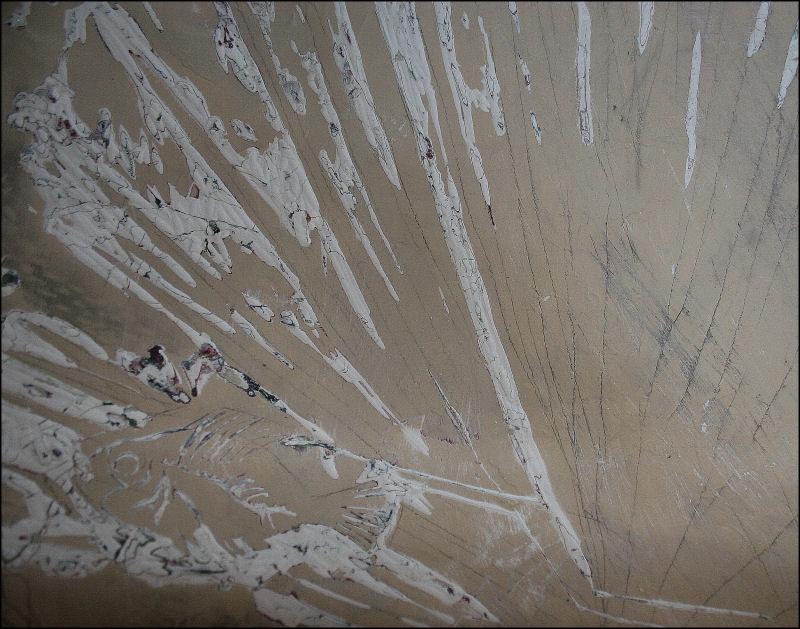 |
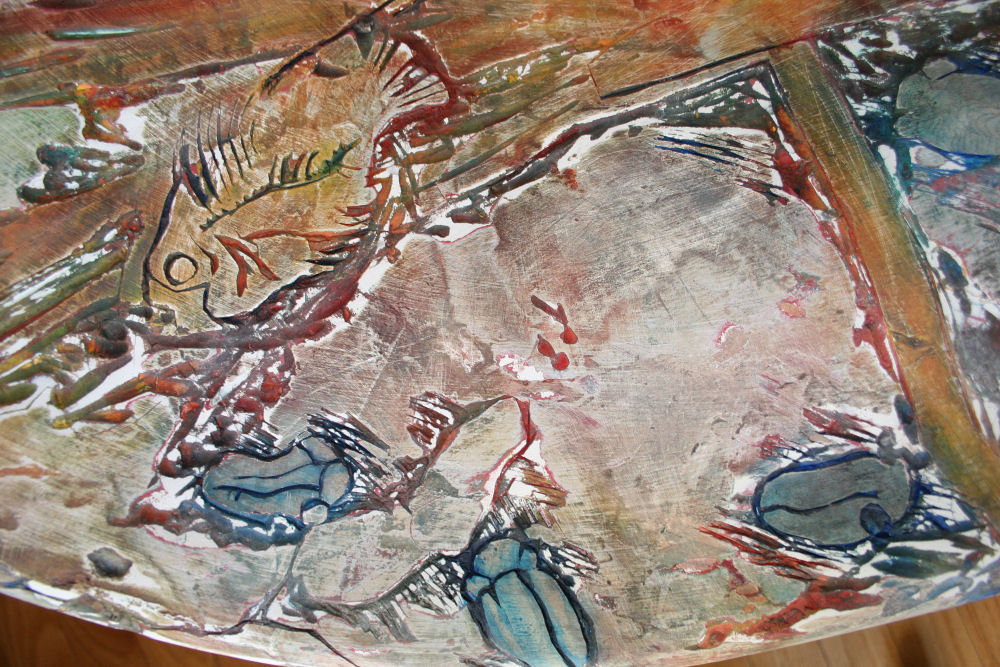 |
|||
| Finished details: | |||||
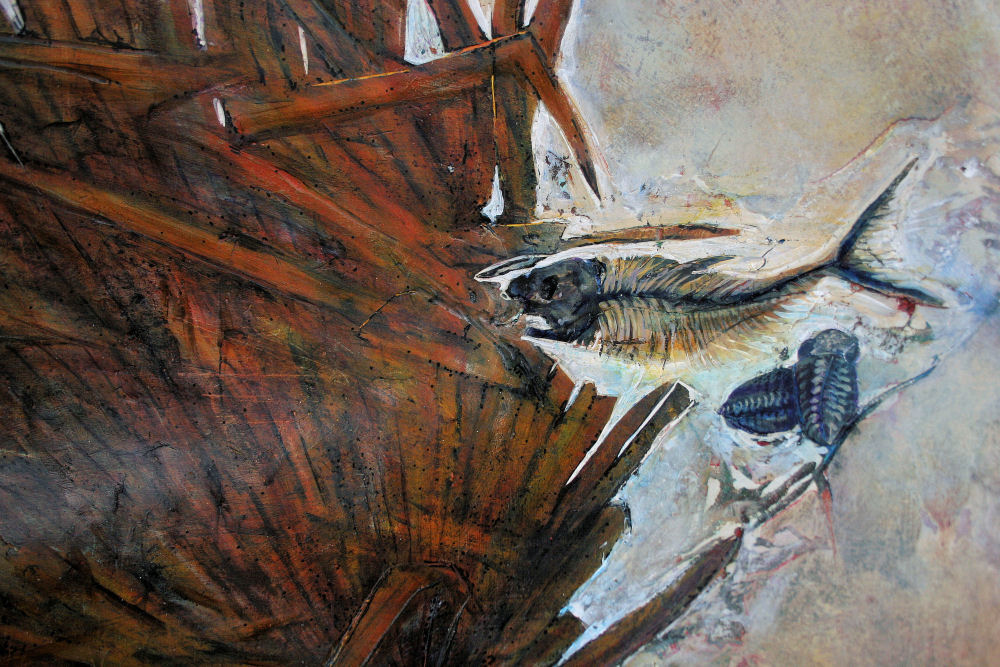 |
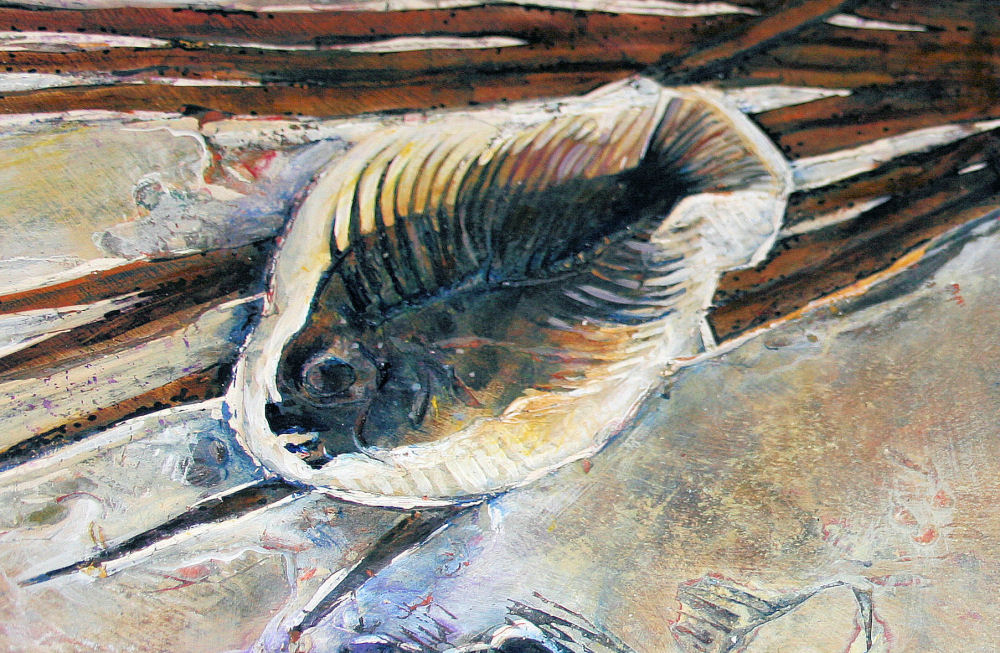 |
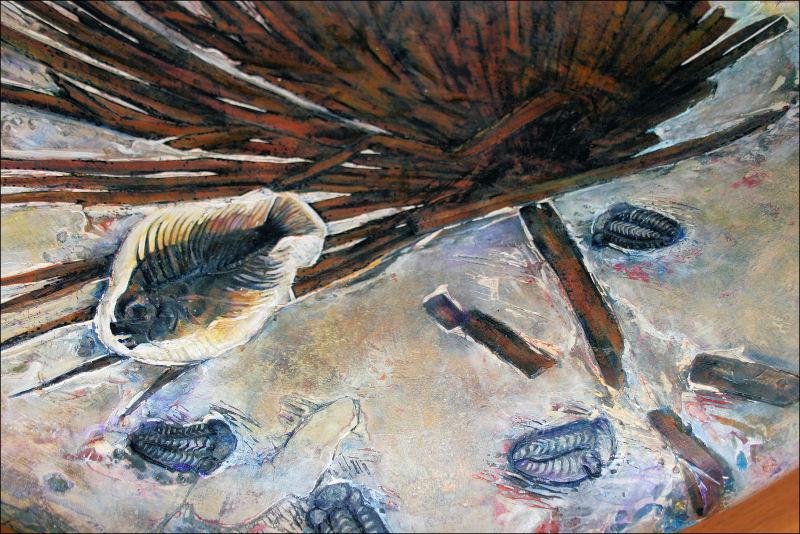 |
|||
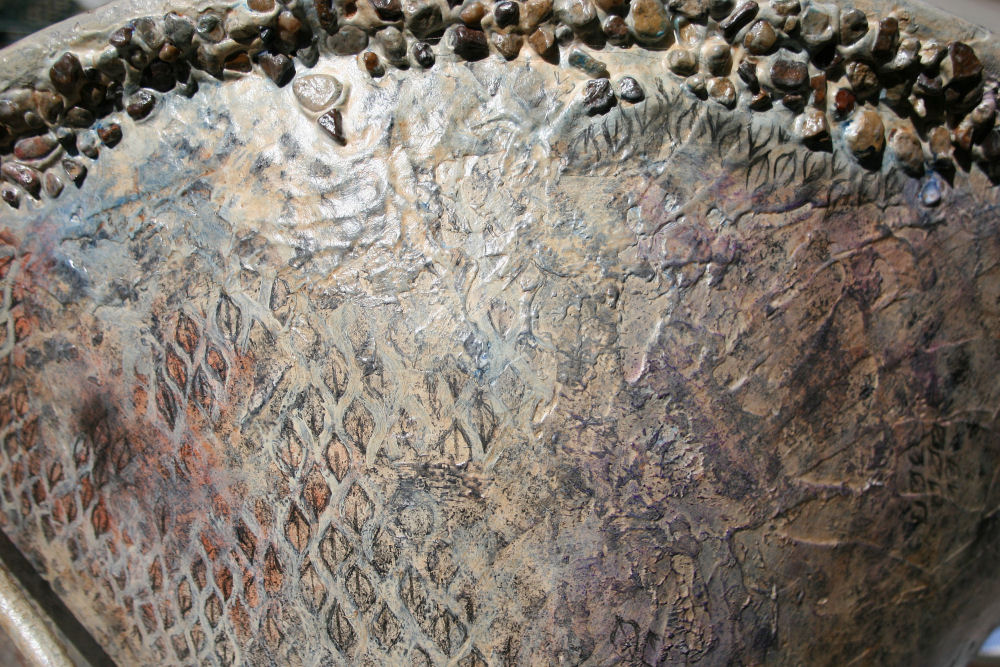 |
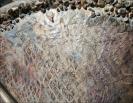 |
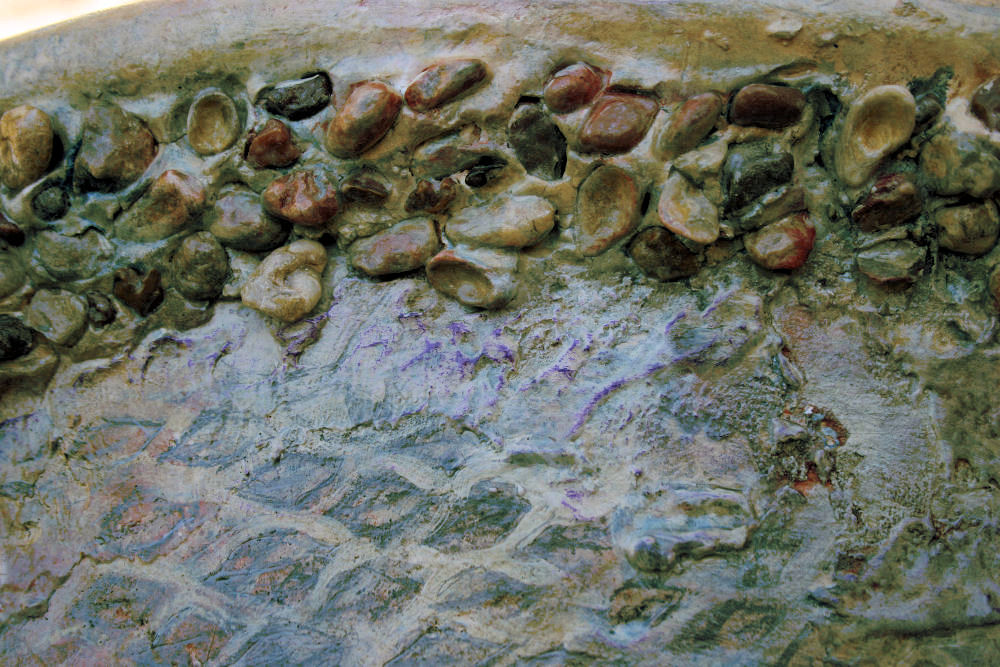 |
Pet portrait
Friday, June 27th, 2008
Cloe, 16 x 20 inches acrylics on canvas
I don’t know if I’ll be able to finish ‘The Fourth of July’ as planned in time for the American holiday. Leaving for Canada on Monday, and will be away for two weeks. I’ve been painting and drawing a few gifts for relatives, one of them this pet portrait. The fur is defined by scratches using my fingernail under a wet cloth.
Nature Insists
Sunday, January 13th, 2008
Nature Insists, growth through rock, North Carolina – 9H x 12W inches graphite, watercolor and graphite on 40lb cold-pressed premium watercolor paper. Framed size 26H x 22W inches.
Heart Shapes in Nature series
Tuesday, December 25th, 2007
Heart Shapes in Nature is an ongoing photographic series. Love is infinite. Wishing happy holidays no matter what your faith, and Merry Christmas!
Southern Utah
Tuesday, May 2nd, 2006
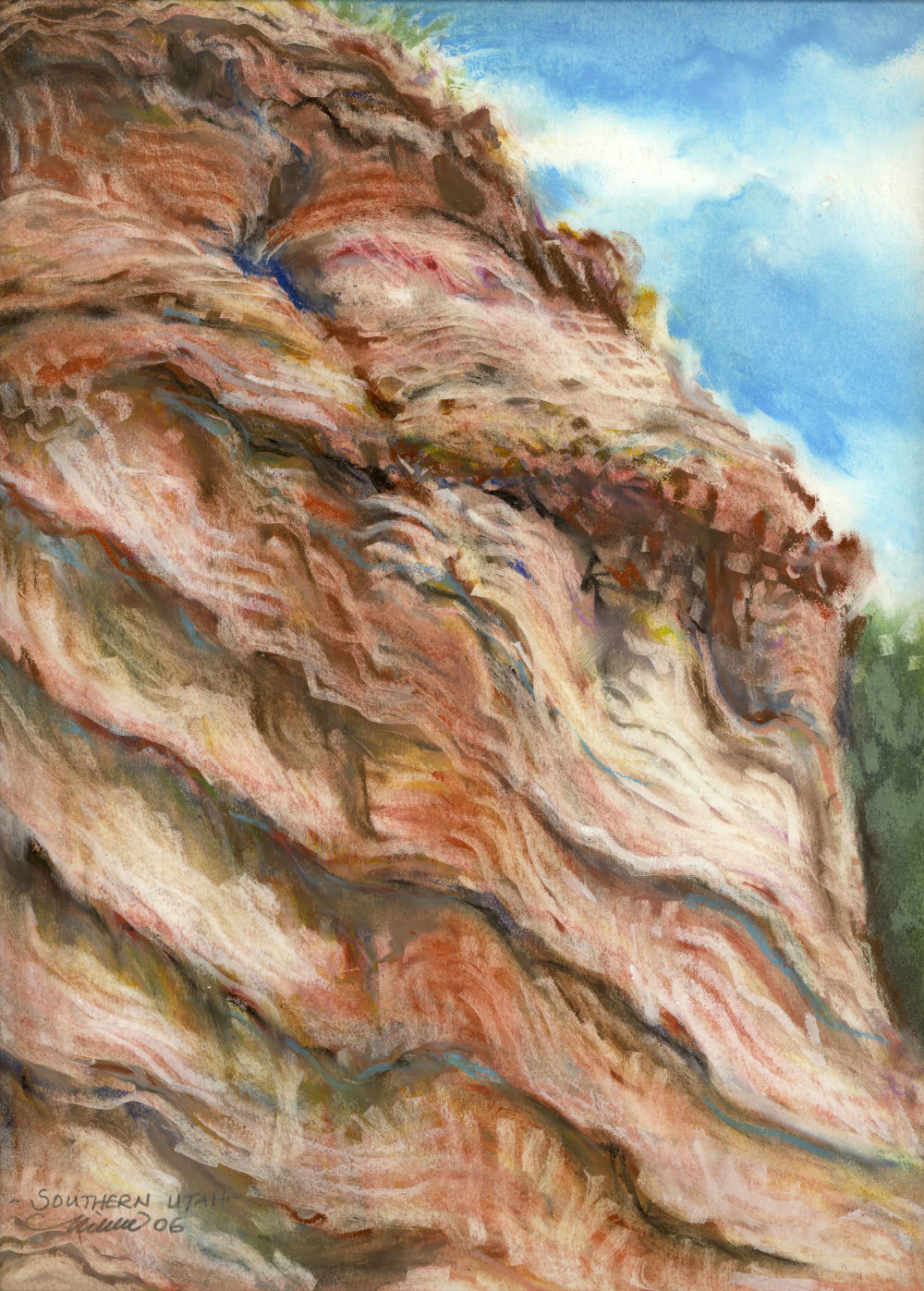
Red Rocks in Southern Utah, 14H x 11W inches oil pastels on paper, 3-inch-wide white double mat and 26H x 22W inch white custom-built white wood frame with crackle finish.
Part of the Paper Places series. I find driving anywhere preferable to flying because of scenery like the landscape in Southern Utah. The colors and patterns are stunning!
Pebbles, set of 4 Mosaics
Wednesday, January 25th, 2006
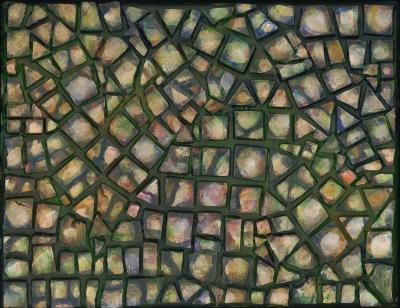
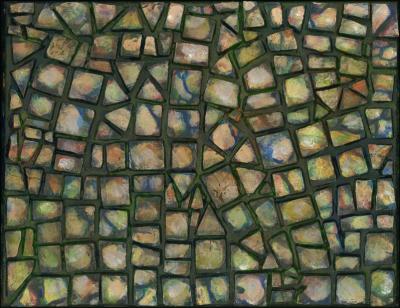
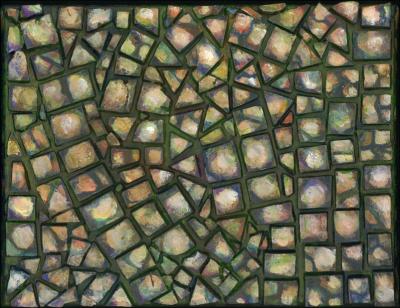
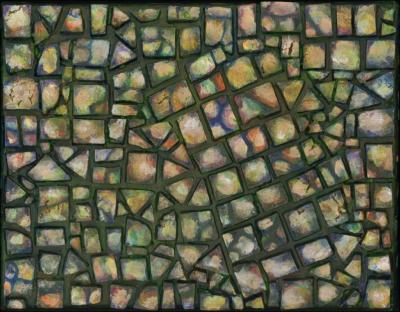
Pebbles Mosaics – Part of the Zen Garden series. Set of four 8 x 10 x 1 inch mixed media on canvas, wrapped edges painted. Hand-made tiles, acrylics, varnished, and sides painted to look like more mosaic around the edges. The tiles are made of a trade-secret recipe, rolled out, cut and air-dried, then have many applications of acrylic paint and varnish.
Each piece in the set is different and can be placed in any order to create a pattern or pathway of “pebbles”. Very versatile, the four 8 x 10 inch mosaics are wired to be arranged on the wall in a number of ways, and changed for variety in decor or wall sizes: vertically, horizontally, in a square configuration or linear sideways or lengthwise.


